Dawlish's storm-damaged railway line reopens
- Published
Dawlish railway repairs in two minutes - courtesy Network Rail
The main railway line through Dawlish in Devon has reopened after part of the track was destroyed during winter storms.
The track was swept away with part of the sea wall in early February, cutting off the service linking Cornwall and much of Devon with the rest of the UK.
A 300-strong Network Rail team has rebuilt the track at a cost of £35m.
Prime Minister David Cameron praised the "Herculean effort" of workers on round-the-clock shifts.

In Dawlish, Prime Minister David Cameron praised the "Herculean effort" of the "Orange Army" of workers
The first passenger train on the line was the 05:34 BST from Exeter to Paignton.
At London's Paddington station, sticks of rock were given out to celebrate the line reopening.
They were labelled: "Welcome back Dawlish! The orange army has rebuilt the railway so you can enjoy your journey to the South West again."
Mr Cameron, who travelled to Dawlish to mark the reopening, hailed it as "a great day" and said south-west England was "open once again".
The sea wall of the coast-hugging line at Dawlish was breached on 5 February, leaving tracks dangling in mid-air.
Repair work was under way before being hampered by another severe storm on the night of February 14 when huge waves damaged a line of shipping containers forming a breakwater and punched a new hole in the sea wall.
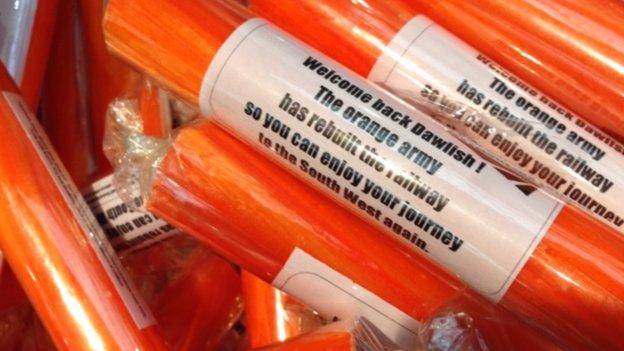
Sticks of rock from the "orange army" were given out to celebrate the line reopening
Then, on 4 March, engineers discovered 25,000 tonnes of a cliff face near Teignmouth just south of Dawlish had sheared away above the line.
It resulted in water jets being used to pummel the cliff face to create a controlled landslide.
Contractors created new 3.5m (11.5ft) deep concrete foundations into the breach in the sea wall before the track was re-laid.
Patrick Hallgate, Network Rail: Dawlish railway collapse 'could happen again'
'Very solid'
In total, £15m was spent repairing the area outside Dawlish station where track had been left dangling.
It cost an additional £20m to repair tracks either side of the town.
Andy Crowley, from contractor Amco, said: "The amount of concrete that's gone in there, that will be there for at least 200 years, beyond a shadow of a doubt."
Julian Burnell, from Network Rail, said the repair of the breach was "very, very solid".
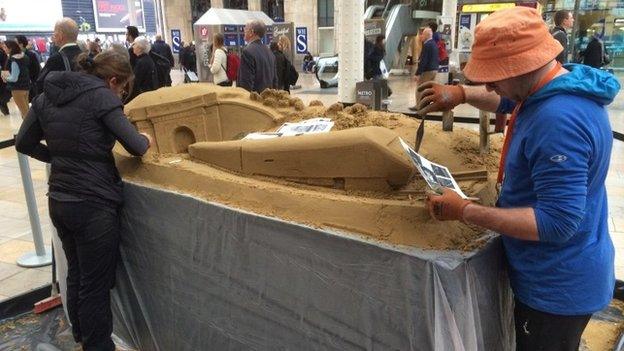
A sand sculpture was created at Paddington station to mark the line coming back into service
Network Rail chief executive Mark Carne said: "Our army of engineers has done an amazing job of putting back together a railway that was ravaged by the elements.
"They have overcome every obstacle thrown at them, winning many battles along the way to restore this critical piece of the network, ahead of schedule, and in time for the Easter holidays."
He thanked "hugely supportive and patient" local communities and businesses.
Local councils and tourism groups welcomed the reopening of the track ahead of the holidays.
Cornwall Council leader John Pollard said the reopening was "excellent news".
However, he added that "long-term solutions to ensure that there is a sustainable rail link to and from Cornwall" were needed.
"It is not acceptable for the main rail link to be shut for long periods of time and we look forward to seeing this commitment from the government," he said.
Sir Tim Smit, founder of Cornwall's Eden Project, said the closure demonstrated the need for south west England to have better infrastructure.
He said: "One of the problems I think we face down here is a sort of political inertia.
"Because we don't have, if you like, the levers of power to make us seem important enough, we get viewed by the capital as if it's still at the old days of the Cornish Riviera, with a few nice things to do for people who've got wealth to come down and have holidays.
"But actually it's a really thriving place. I mean, it's one of the hubs of the creative industries in Britain. Yet you wouldn't know that the way we're talked about".
Network Rail is now looking at creating a new inland route as a back-up to the Dawlish line.
Mr Cameron said he knew "how cut off people felt here in the south west after that terrible storm and it was so important to get this work done".
He said: "People talk about the south west as a great tourist destination, and of course it is and I'll be back here this summer, I can guarantee you.
"But it's not just that. This is also a hub of creativity, an area of vital industry, an area of important manufacturing and, of course, with Plymouth and all that entails, a vital area for the defence of our country."
What the line at Dawlish looked like after the storms - and what it looks like now
- Published4 April 2014
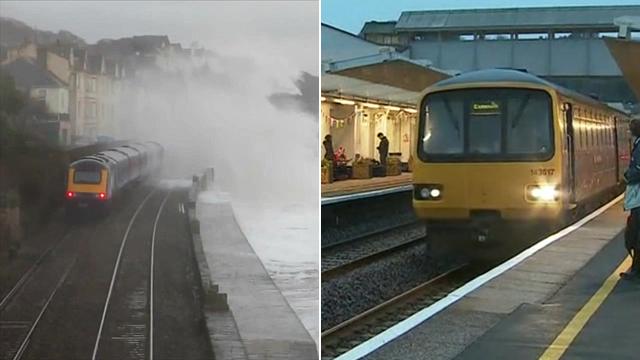
- Published4 April 2014
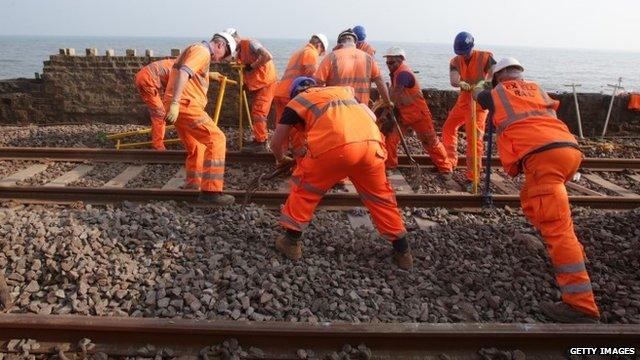
- Published4 April 2014
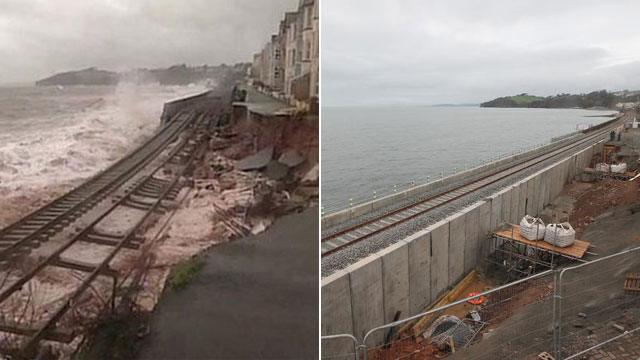
- Published4 April 2014
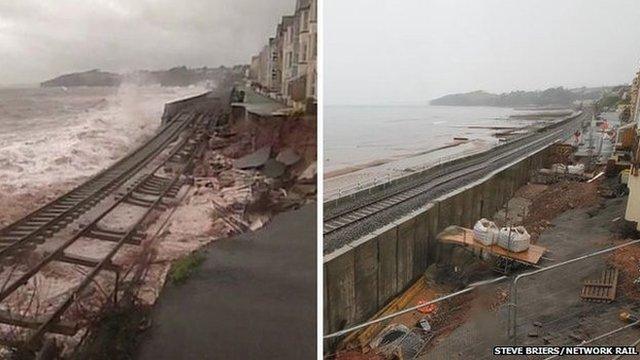
- Published4 April 2014
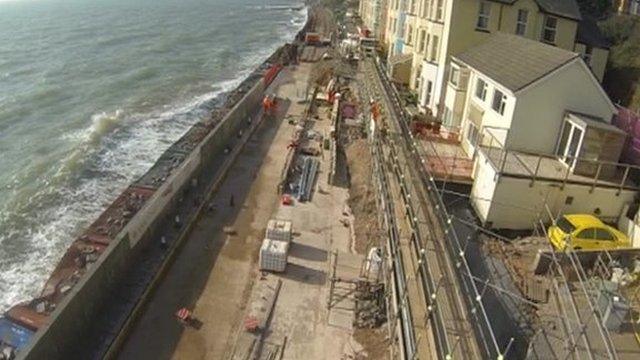
- Published4 April 2014
- Published2 March 2014
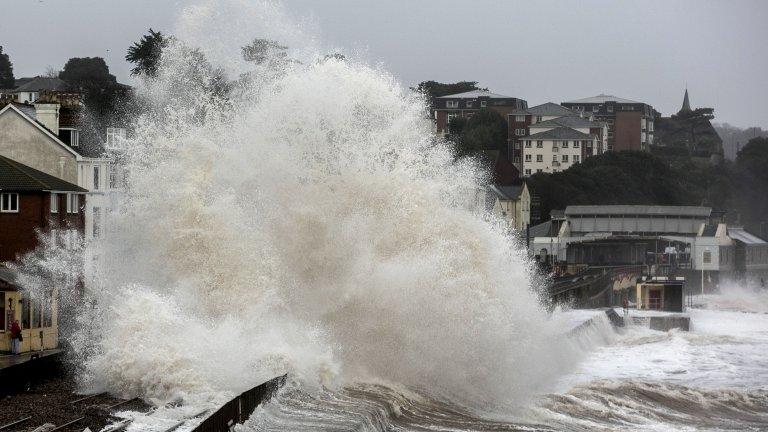
- Published26 February 2014
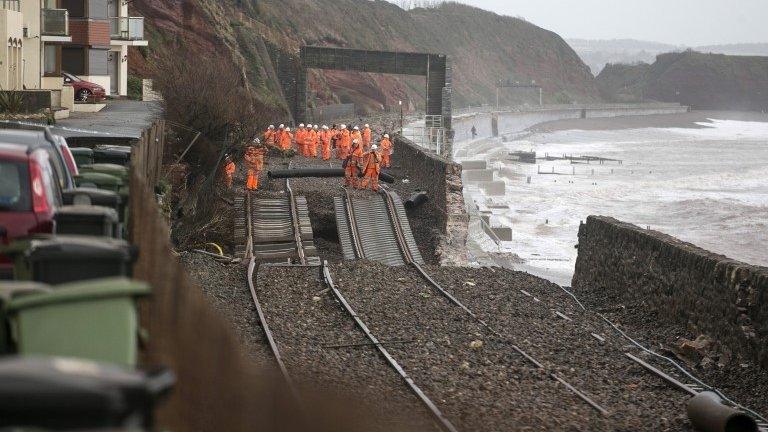
- Published25 February 2014
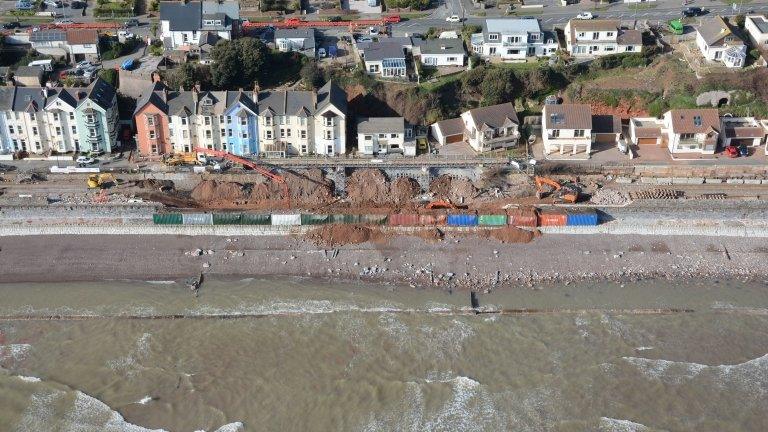
- Published25 February 2014
